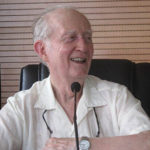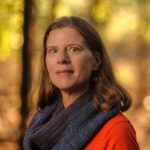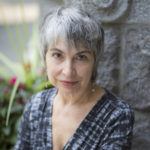
Process Summer Institute 2019
EXPLORE PROCESS THEOLOGY WITH:
TPS-3019 Being Human: Becoming the Best Bag of Bones You Can Be (Mon-Fri, 9:00-11:00 AM)
with Donna Bowman
Course Description:
This course explores how Christian theology can address our rapidly changing paradigms of human existence. We will explore how process theology can contribute to our knowledge of the human self as gained through the sciences, how a process theological perspective on humanity is useful in contemporary pluralistic and global settings, as well as the theological significance to work and play. Also considered will be issues of gender, sexuality, creativity, and human expression, and how it is no longer possible to assign definitive meaning to categories like man and woman, self and society, freedom and determinism, reason and feeling, soul and body by reference to systems of narrative (including biblical narrative) and interpretation in which those ideas are taken for granted. The theology of human personhood begins with irreducible experiences both universal and particular and searches for functional understandings from the whole range of Christian and non-Christian ways of knowing.
Donna Bowman is Professor of Honors Interdisciplinary Studies at the Norbert O. Schedler Honors College at the University of Central Arkansas. Her training in philosophical theology and religious studies has led to a scholarly career focused on process theology and Reformed theology, especially the work of Alfred North Whitehead and Karl Barth. She has held several offices in regional and national scholarly organizations, including the Board of Directors of the American Academy of Religion. This course will engage Bowman’s most recent book, The Homebrewed Christianity Guide to Being Human: Becoming the Best Bag of Bones You Can Be.
TPS-3024 Political Theology of the Earth: Process Cosmology and Apocalyptic Hope (Mon-Fri, 1:00-3:00 PM)
with Catherine Keller
Course Description:
Amid melting glaciers, rising waters, and spreading droughts, Earth has ceased to tolerate our pretense of mastery over it. But how can we confront climate change when political crises keep exploding in the present? This course will invite us to read the feedback loop of political and ecological depredation as secularized apocalypse from a process perspective. If the politics of exceptionalism are theological in origin, should we not enlist the world’s religious communities as part of the resistance? Might we consider dissolving the opposition between the religious and the secular in favor of a broad planetary movement for social and ecological justice? When we are confronted by populist, authoritarian right wings founded on white male Christian supremacism, can we counter with a messianically charged, often unspoken theology of the now-moment, calling for a complex new public? These are some of the questions we will engage during this course, as we work to weave a process political theology of the earth which activates the world’s entangled populations, joined in solidarity and committed to revolutionary solutions to the entwined crises of the Anthropocene.
Catherine Keller is Professor of Constructive Theology at the Theological School of Drew University. In her teaching, lecturing and writing, she develops the relational potential of a theology of becoming. Her books reconfigure ancient symbols of divinity for the sake of a planetary conviviality—a life together, across vast webs of difference. Thriving in the interplay of ecological and gender politics, of process cosmology, poststructuralist philosophy and religious pluralism, her work is both deconstructive and constructive in strategy. This course will engage her most recent book, Political Theology of the Earth and her forthcoming book Apocalypse After All?.
TPS-3025 Christological Trajectories in Process (Mon-Fri, 4:00-6:00 PM)
with Tripp Fuller
Course Description:
Who was Jesus, called the Christ? Christology is often considered the most important topic of Christian theology. The attitude of process theologians to Christology is quite varied. Putting the Christ back into Christian, this course will be a survey and foray of Christological trajectories in process theology. From John Cobb, to David Griffin, and more, we will explore the unique and varied process contributions on questions like: Is Jesus God? How was God incarnate in Jesus? What is the significance of Jesus for process Christians?
Tripp Fuller is the founder and cohost of Homebrewed Christianity, the top theology podcast in the world. He’s also the coauthor of Transforming Christian Theology (Fortress Press, 2009) and of The Homebrewed Christianity Guide to Jesus: Lord, Liar, Lunatic Or Awesome? (Fortress Press, 2015), a sought-after conference speaker, competitive home brewer, minister, and holds a PhD in Philosophy of Religion and Theology from Claremont Graduate University. He is also the self-proclaimed president of the John Cobb fan club where he holds the title of #FANiac in Chief. This course will engage Tripp’s forthcoming book on process theology and christology–i.e. Jesus study.
 Lunchtime Round-Table Discussions: “Ask Dr. Cobb”
Lunchtime Round-Table Discussions: “Ask Dr. Cobb”
with John B. Cobb, Jr.
Description:
Over lunch hour, whether you bring your own lunch or purchase the catered lunches through the registration page (see link below), we hope you will plan to join with other participants of the Summer Institute in engaging Dr. John Cobb in conversations on a variety of topics. On Monday, Dr. Cobb is proposing the topic of “What the basileia theou was to Jesus, ecological civilization is to us” and he invites you to bring your questions, ideas, and conversation topics to the table Tuesday through Friday. Don’t miss this rare opportunity to spend some time with one of the great thinkers of our time over a relaxing meal with others interested in Process Philosophy and Process Theology.
John B. Cobb, Jr. is an American theologian, philosopher, and environmentalist. Described by historian Gary Dorrien as one of the two most important North American theologians of the twentieth century, Cobb is the preeminent scholar in the field of process philosophy and process theology, and the author of more than fifty books. Two of his more recent titles are Jesus’ Abba: The God Who Has Not Failed and Theological Reminiscences. In 2014, he was elected to the American Academy of Arts and Sciences. Cobb is a founding co-director of the Center for Process Studies and Professor Emeritus of Claremont School of Theology and Claremont Graduate University.
Join us in Claremont or Online!
[maxbutton id=”1″ url=”https://processandfaith.org/product-category/2019-summer-institute/” text=”Non-Credit Registration” ]
For Academic Credit:
- Classes may be taken for 1 semester unit of academic credit or 1 advanced course of study credit through Claremont School of Theology at the posted tuition rate. Students who wish to take all three Summer Process Institute courses must register using the Summer Institute course number, and will not be allowed to register for the courses individually. Registered students should contact the Center for Process Studies for classroom information.
- Non-CST students may also take the course for credit. Please fill out and submit the Transient Student and Course Registration forms to the CST registrar at jallen@cst.edu. DEADLINE, MAY 29th.
- Classes are available in person or fully online.
- CST students who want credit, register through the CST registrar in consultation with your advisor.
For Personal Enrichment:
(Discounted Non-Credit Registration Prices until May 1)
The entire week may be taken as personal enrichment for $300 payable to Process & Faith/CST, or each segment for $125. Please register below; prices go up May 1.
FAQ
- I’m a CST student and I would like to take this class for credit. How do I do that?
CST students who want credit, register through the CST registrar in consultation with your advisor. - I’m a graduate student at an accredited institution, and I would like to take this class for credit. How do I do that?
- I don’t know about this online thing! Can I come to Claremont?
Sure you can. We would very much enjoy having you join us, whether in person or online. - If I come to Claremont and don’t live nearby, where can I stay?
Here is a list of local hotels. - If I’m in Claremont, where can I go for lunch?
We have provided a map highlighting some places within the area. Click here to go to the page. Also, consider checking out the Claremont Village. - Can I get Continuing Education Units (CEUs) for taking any of these classes?
Yes. Continuing Education Units (CEUs) are available through the Registrar’s office of Claremont School of Theology. Payment for the CEUs is in addition to cost of registering for the Summer Institute. If you would like to register for CEUs, first please register for the Summer Institute course(s) and/or lunchtime workshop you would like. Then click on the link for the Process Theology Summer Institute CEUs page and register for the course(s) and/or lunchtime workshop for which you would like to receive CEUs. If you have any questions about CEUs, don’t hesitate to email Process & Faith directly.
- Are online classes only offered in “real time?” Or if I miss an online class session, can I get a recording of the class session?
The online option is offered live, in real time. Each course session will be recorded for archival purposes, and may be available for viewing upon request. - Do I need to read anything before class starts?
There is a syllabus posted for each course on the Summer Institute info website which will indicate whether there are any assigned readings. Additionally, if there are assigned or suggested books, you can purchase them through wherever you shop for books, or they will be available through the Flux Bookstore in the Center for Process Studies. - Is there homework?
Those taking the course for credit will be required to write a 10 page paper (or creative project equivalent) for each segment taken. Please consult your instructor directly for more information and to get approval on paper/project topics.
Non-Credit Registration
(Discounted Non-Credit Registration Prices until May 1)
[maxbutton id=”1″ url=”https://processandfaith.org/product-category/2019-summer-institute/” text=”Register Now” ]



